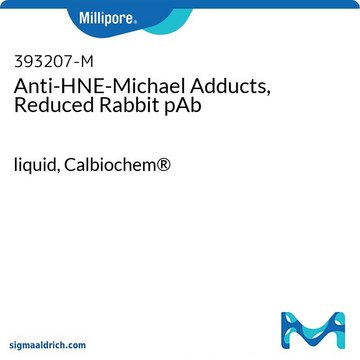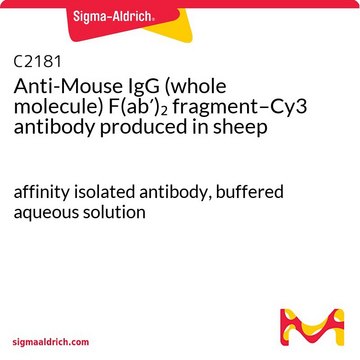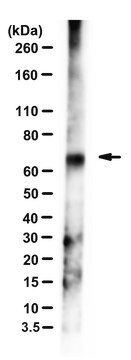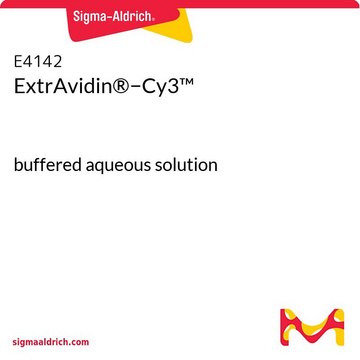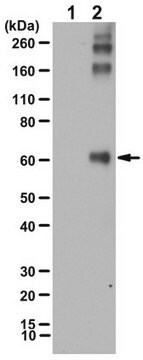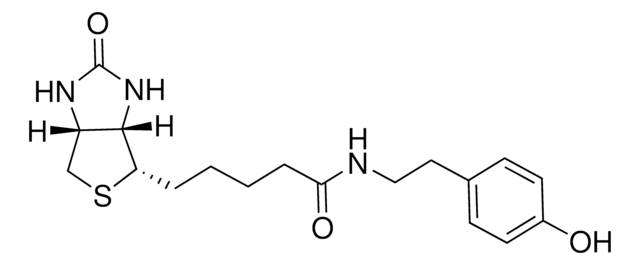AB5411
Anti-Nitrotyrosine Antibody
Chemicon®, from rabbit
Synonym(s):
Nitrotyrosine antibody
About This Item
Recommended Products
biological source
rabbit
Quality Level
antibody form
purified immunoglobulin
antibody product type
primary antibodies
clone
polyclonal
species reactivity
mouse, human
species reactivity (predicted by homology)
all
manufacturer/tradename
Chemicon®
technique(s)
immunohistochemistry: suitable (paraffin)
western blot: suitable
shipped in
wet ice
target post-translational modification
unmodified
Gene Information
human ... NOS1(4842)
General description
Specificity
Immunogen
Application
Neuroscience
Oxidative Stress
1:100-1:1,000 dilution of a previous lot was used sucessfully in western blot when tested against nitrated BSA and nitrated ovalbumin.
Immunohistochemistry:
1:50-1:100 on paraffin embedded, 10% neutral buffer formalin fixed mouse liver (animal treated with Zymosan) and normal human cerebellum tissues. The tissues must be pretreated with heat induced epitope retrieval (HIER). Incubation with the AB5411 was for 10 minutes and the reaction was developed with the Chemicon IHCSelect, HRP-DAB kit (Catalog number DAB150).
Optimal working dilutions must be determined by end user.
Quality
Nitrotyrosine (AB5411) staining of Mouse Brain (Zymosan), tissue pretreated with citrate buffer, pH 6.0. Polyclonal antibody was diluted to 1:500, using IHC-Select Detection with HRP-DAB. Immunoreactivity is seen in here in hippocampus.
Optimal Staining of Nitrotyrosine Monoclonal: Mouse Brain Treated With Zymosan.
Linkage
Physical form
Storage and Stability
Analysis Note
POSITIVE CONTROL: Tyrosine residues can be nitrated directly in situ on tissue sections using peroxynitrite (catalog # 20-107) to create a positive control. After the tissue section is deparaffinized, the slide is covered with a drop of PBS, pH 7.4 into which 10 microliters of peroxynitrite solution are mixed. Care should be taken that the solution maintains a pH of 7.4.
Other Notes
Legal Information
Disclaimer
Not finding the right product?
Try our Product Selector Tool.
Storage Class Code
12 - Non Combustible Liquids
WGK
WGK 2
Flash Point(F)
Not applicable
Flash Point(C)
Not applicable
Certificates of Analysis (COA)
Search for Certificates of Analysis (COA) by entering the products Lot/Batch Number. Lot and Batch Numbers can be found on a product’s label following the words ‘Lot’ or ‘Batch’.
Already Own This Product?
Find documentation for the products that you have recently purchased in the Document Library.
Our team of scientists has experience in all areas of research including Life Science, Material Science, Chemical Synthesis, Chromatography, Analytical and many others.
Contact Technical Service